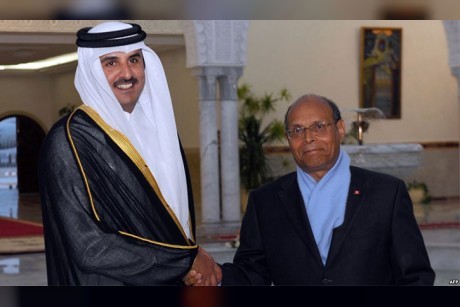Qatar attempts to paint a picture of a national economy unaffected by the diplomatic crisis with its neighbors Saudi Arabia, the UAE, Egypt and Bahrain. Yet the latest economic data and financial statistics reveal a very different story.
Qatar’s economic sectors, industries and major financial institutions have been considerably impacted by the boycott of Doha over its alleged support of terrorist groups, as wrote Majid Rafizadeh, the president of the International American Council, in his article.
Firstly, Qatar’s gross domestic product (GDP), which was expected to grow by 3.1% before the crisis, will grow by just 2.5% in 2017, according to economists surveyed by Bloomberg in August.
Doha’s fiscal deficit for 2017 is currently expected to increase to 5.1% of GDP, up from 4.6%, the economists forecast. Fitch Ratings in August downgraded Qatar’s sovereign credit rating, while other ratings agencies including Standard & Poor’s and Moody’s have also revised their positions in the fallout of the diplomatic crisis. In July, Moody’s reduced its outlook on Qatar to negative from stable, and downgraded the forecast for three major institutions including Qatar Petroleum (QP).
Qatar’s stock market has also been hit. The index on Wednesday sank to a five-year low, bringing total losses, since four other Arab states boycott Qatar on June 5, to nearly 18%. Qatari industries to have been significantly impacted include tourism and transport. According to a Fitch report in August, the number of passengers carried by Qatar’s national airline had dropped by 10% since the start of the diplomatic row.
Although Qatari leaders have attempted to show that other countries such as Turkey and Iran are providing Doha with the required imports, food and beverage prices climbed 4.5% from a year earlier in July, their fastest increase since at least 2014. This is due to the fact that other countries cannot offer as competitive prices as other GCC members do.
Qatar has approximately $340 billion in reserves to address the negative impacts on its economy, but this will not resolve the underlying issue. Furthermore, given the gloomy outlook, Qatar will increasingly find it difficult to attract foreign investment. According to Qatar Central Bank data from late July, net foreign reserves dropped by $10.4 billion in June.
Qatar has been forced to deposit billions of dollars into its banks. But this is unlikely to resolve the underlying problem as foreign reserves continue to decline, and more cash is leaving Qatar’s local and commercial banks.
In a nutshell, the negative economic trend in Qatar cannot continue for long. Use of Doha’s reserves and new deals with other countries will not address the major financial problems at play. Qatar’s economic outlook will continue to decline if the Gulf crisis persists.
It is therefore in Qatar’s long-term interests to change its policies in order to restore ties with other GCC members. Otherwise, sooner or later, the downward financial trend will lead to major domestic discontent and resistance, endangering the Qatari leaders’ hold on power.



